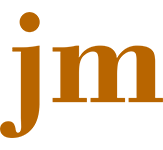
Two ancient wheat species, possibilities for the production of einkorn and emmer in organic farming
Andrea Emődi, Imre Tirczka, Mátyás Hartman, Csaba Dobolyi, Flóra Sebők, Ferenc Gyulai
The diploid einkorn (Triticum monococcum ssp. monococcum) and the tetraploid emmer (Triticum turgidum ssp. dicoccum) have been produced in smaller areas − primarily in poor quality arable lands in the mountains − in Hungary until the 19th century. Nowadays these two ancient glumaceous wheat species came into the limelight again, as they could be possibly used mostly in organic farming. The aim of our research was to expand the currently available – and fairly incomplete − knowledge about the organic production of einkorn and emmer. We compared the plant development, the weed control characteristics, the yield level and the effects of soil quality in the case of the einkorn variety called „Mv Alkor” and the emmer variety called „Mv Hegyes” in field experiments. According to our results covering one vegetation period, it can be stated that both species could be successfully used in organic farming even in areas with lower production potentials, as their production technology can be easily integrated into this kind of system. Especially, the general weed and ragweed control features of einkorn proved to be very beneficial.
